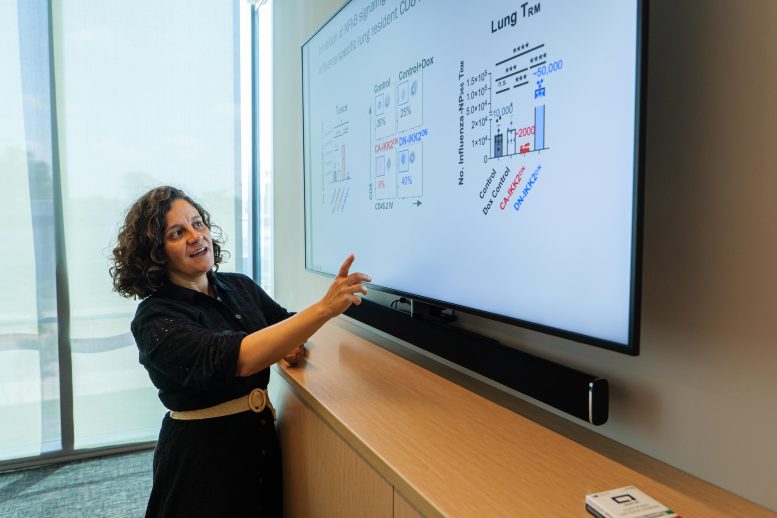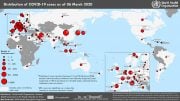
University of Missouri researchers have discovered a method to enhance immunological memory, potentially leading to more effective vaccines and treatments for influenza and other diseases. Credit: University of Missouri’s Ben Stewart
New research findings can potentially support the development of more effective vaccines and therapeutics, ultimately increasing immunological memory to combat influenza and other respiratory infections.
When humans or animals become infected, the body’s immune system works diligently not only to clear the infection but also to establish a memory of the causative pathogen. The purpose of this is simple: if the pathogen tries to reinfect the body, a prepared contingent of memory T cells is ready to recognize and annihilate it. These T cells play a pivotal role in immunological memory and are integral to effective vaccines.
Researchers at the University of Missouri have made significant advancements in strengthening this T cell army. In a recent study undertaken at the Roy Blunt NextGen Precision Health building, they discovered that the strength and duration of immunological memory can be enhanced by manipulating a specific molecular signaling pathway in T cells. These T cells are engaged in clearing the influenza virus from the lungs.

T cells can recognize parts of viruses that do not mutate, so if researchers can better understand how to strengthen the T cells and extend the time frame when they can do their job appropriately, the body’s immune system will ultimately be better suited to fight against infection and lessen the severity. Credit: Mark-Daniels/MU
Potential Impact on Vaccine Development
This groundbreaking discovery could potentially support the future development of more effective vaccines and therapeutics to combat influenza and other respiratory infections with the ultimate goal of increasing the body’s immunological memory, which can both prevent and lessen the severity of infections and reinfections.
Leading the NIH-funded study were Emma Teixeiro and Mark A. Daniels, associate professors at the MU School of Medicine. The research hinged on unique mouse models to study influenza infection.
“Immunologists like myself have always wondered why T cells in the lungs after influenza infection disappear so quickly,” Teixeiro said. “This research can help us solve that problem by increasing the amount of T cells that can fight against infection. In this study, we have identified novel ways to improve the generation and long-term maintenance of protective immunity against influenza, and that is by manipulating a molecular target known as the IKK2/NFkB signaling pathway.”

Emma Teixeiro, an associate professor in the MU School of Medicine, led the NIH-funded study. Credit: Mark-Daniels/MU
Broad Implications and Future Directions
Teixeiro added that T cells can recognize parts of viruses that do not mutate, so if researchers can better understand how to strengthen the T cells and extend the timeframe when they can do their job appropriately, the body’s immune system will ultimately be better suited to fight against infection and lessen the severity.
While the influenza virus was the focus of this particular study, gaining knowledge of the underlying molecular mechanisms and signaling pathways that regulate memory in tissues can be helpful to improve therapeutics for patients with cancer, autoimmunity, or other respiratory infections.
“By unveiling the biochemical and molecular secrets of these T cells, we can provide valuable information to other scientists who work on optimizing vaccine strategies,” Teixeiro said. “The good news is there are already clinical treatments that do target this particular pathway we identified, so this study is a big step in the right direction, but we still have a long way to go.”
“IKK2/NFkB signaling controls lung resident CD8+ T cell memory during influenza infection” was recently published in Nature Communications. Coauthors on the study include Curtis J. Pritzl, Dezzarae Luera, Karin M. Knudson, Michael J. Quaney, Michael J. Calcutt and Mark A. Daniels.
Reference: “IKK2/NFkB signaling controls lung resident CD8+ T cell memory during influenza infection” by Curtis J. Pritzl, Dezzarae Luera, Karin M. Knudson, Michael J. Quaney, Michael J. Calcutt, Mark A. Daniels and Emma Teixeiro, 19 July 2023, Nature Communications.
DOI: 10.1038/s41467-023-40107-1








Be the first to comment on "Boosting Long-Lasting Immune Defense Against the Flu"